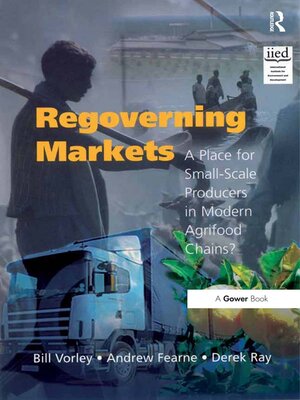Regoverning Markets
ebook ∣ A Place for Small-Scale Producers in Modern Agrifood Chains? · Gower Sustainable Food Chains Series
By Bill Vorley

Sign up to save your library
With an OverDrive account, you can save your favorite libraries for at-a-glance information about availability. Find out more about OverDrive accounts.
Find this title in Libby, the library reading app by OverDrive.



Search for a digital library with this title
Title found at these libraries:
| Library Name | Distance |
|---|---|
| Loading... |
The internationalisation of food retailing and manufacturing that has swept through the agri-food system in industrialised countries is now moving into middle- and low-income countries with large rural populations, causing significant institutional changes that affect small producer agriculture and the livelihoods of rural communities the world over. Farmers and policy-makers are struggling to keep up with the wave of new demands being made on their supply chains by food manufacturers and retailers. In the process, new questions and challenges are arising: Can small-scale farmers organise to meet the demands of corporate giants? Should governments liberalise Foreign Direct Investment in the retail sector and expose numerous small shops to competition from multinationals? Can distribution systems be adapted to make markets work better for the poor? This book offers a contemporary look at what happens when the modernisation of food supply chains comes face to face with the livelihoods of rural and poor people. The authors are drawn from eighteen countries participating in the 'Regoverning Markets' programme, which aims to not only improve our understanding of the way modernisation and re-structuring of food supply chains is affecting food production and distribution systems, but also identify best-practice in involving small-scale producers in supermarket supply chains, and ascertain the barriers to inclusion which need to be removed. The book is aimed primarily at academics but will also appeal to practitioners in developing countries, civil servants, policy-makers and NGOs.







